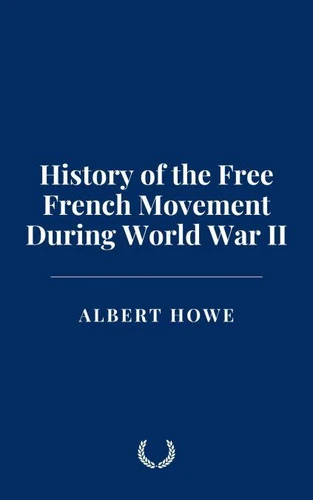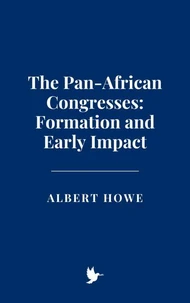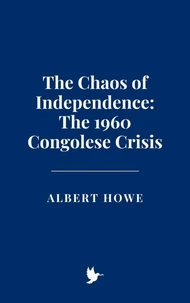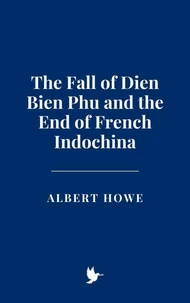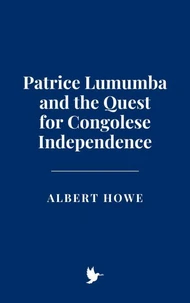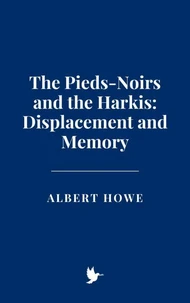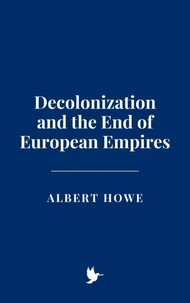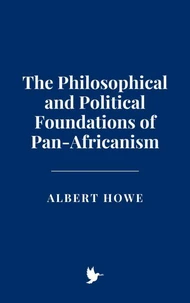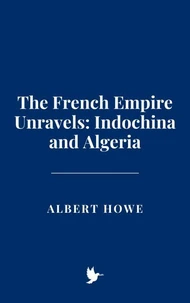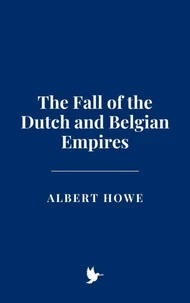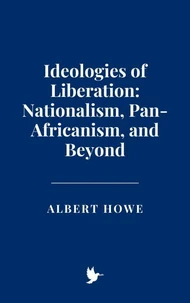History of the Free French Movement During World War II
Par :Formats :
Disponible dans votre compte client Decitre ou Furet du Nord dès validation de votre commande. Le format ePub est :
- Compatible avec une lecture sur My Vivlio (smartphone, tablette, ordinateur)
- Compatible avec une lecture sur liseuses Vivlio
- Pour les liseuses autres que Vivlio, vous devez utiliser le logiciel Adobe Digital Edition. Non compatible avec la lecture sur les liseuses Kindle, Remarkable et Sony
 , qui est-ce ?
, qui est-ce ?Notre partenaire de plateforme de lecture numérique où vous retrouverez l'ensemble de vos ebooks gratuitement
Pour en savoir plus sur nos ebooks, consultez notre aide en ligne ici
- FormatePub
- ISBN8227540515
- EAN9798227540515
- Date de parution22/01/2025
- Protection num.pas de protection
- Infos supplémentairesepub
- ÉditeurBig Dog Books, LLC
Résumé
This book delves into the history of the Free French Movement during World War II, tracing its development from Charles de Gaulle's initial calls for resistance to the eventual liberation of France and the postwar reconstruction of the nation. Spanning 20 chapters, the work explores the military, political, and social aspects of the Free French movement, analyzing its crucial contributions to the Allied war effort and its long-lasting impact on postwar France.
Beginning with an in-depth examination of de Gaulle's rise to leadership and the formation of the Free French Forces, the book covers key military campaigns, including the Battle of Bir Hakeim, the contributions of the Free French in North Africa and Italy, and their pivotal role in the D-Day landings and the liberation of Paris. The narrative also examines the complexities of resistance movements within France, highlighting the often conflicting ideologies and motivations of the groups involved.
The postwar period is explored in relation to de Gaulle's vision for the rebuilding of France, from the establishment of the Fifth Republic to his assertive foreign policy, which aimed to preserve French sovereignty amid the Cold War. The legacy of the Resistance, both as a symbol of national unity and as a contested political reality, is also critically analyzed, particularly in terms of how memory and collective identity were shaped in the years following the war.
This work offers a comprehensive analysis of the Free French Movement's impact on the course of World War II and the subsequent political developments in France, illuminating the ways in which the resistance, de Gaulle's leadership, and the nation's struggle for sovereignty and dignity defined the modern French state. Through the lens of historical events, primary sources, and theoretical commentary, the book contributes to a deeper understanding of France's complex relationship with its past and its role in the postwar world.
Beginning with an in-depth examination of de Gaulle's rise to leadership and the formation of the Free French Forces, the book covers key military campaigns, including the Battle of Bir Hakeim, the contributions of the Free French in North Africa and Italy, and their pivotal role in the D-Day landings and the liberation of Paris. The narrative also examines the complexities of resistance movements within France, highlighting the often conflicting ideologies and motivations of the groups involved.
The postwar period is explored in relation to de Gaulle's vision for the rebuilding of France, from the establishment of the Fifth Republic to his assertive foreign policy, which aimed to preserve French sovereignty amid the Cold War. The legacy of the Resistance, both as a symbol of national unity and as a contested political reality, is also critically analyzed, particularly in terms of how memory and collective identity were shaped in the years following the war.
This work offers a comprehensive analysis of the Free French Movement's impact on the course of World War II and the subsequent political developments in France, illuminating the ways in which the resistance, de Gaulle's leadership, and the nation's struggle for sovereignty and dignity defined the modern French state. Through the lens of historical events, primary sources, and theoretical commentary, the book contributes to a deeper understanding of France's complex relationship with its past and its role in the postwar world.
This book delves into the history of the Free French Movement during World War II, tracing its development from Charles de Gaulle's initial calls for resistance to the eventual liberation of France and the postwar reconstruction of the nation. Spanning 20 chapters, the work explores the military, political, and social aspects of the Free French movement, analyzing its crucial contributions to the Allied war effort and its long-lasting impact on postwar France.
Beginning with an in-depth examination of de Gaulle's rise to leadership and the formation of the Free French Forces, the book covers key military campaigns, including the Battle of Bir Hakeim, the contributions of the Free French in North Africa and Italy, and their pivotal role in the D-Day landings and the liberation of Paris. The narrative also examines the complexities of resistance movements within France, highlighting the often conflicting ideologies and motivations of the groups involved.
The postwar period is explored in relation to de Gaulle's vision for the rebuilding of France, from the establishment of the Fifth Republic to his assertive foreign policy, which aimed to preserve French sovereignty amid the Cold War. The legacy of the Resistance, both as a symbol of national unity and as a contested political reality, is also critically analyzed, particularly in terms of how memory and collective identity were shaped in the years following the war.
This work offers a comprehensive analysis of the Free French Movement's impact on the course of World War II and the subsequent political developments in France, illuminating the ways in which the resistance, de Gaulle's leadership, and the nation's struggle for sovereignty and dignity defined the modern French state. Through the lens of historical events, primary sources, and theoretical commentary, the book contributes to a deeper understanding of France's complex relationship with its past and its role in the postwar world.
Beginning with an in-depth examination of de Gaulle's rise to leadership and the formation of the Free French Forces, the book covers key military campaigns, including the Battle of Bir Hakeim, the contributions of the Free French in North Africa and Italy, and their pivotal role in the D-Day landings and the liberation of Paris. The narrative also examines the complexities of resistance movements within France, highlighting the often conflicting ideologies and motivations of the groups involved.
The postwar period is explored in relation to de Gaulle's vision for the rebuilding of France, from the establishment of the Fifth Republic to his assertive foreign policy, which aimed to preserve French sovereignty amid the Cold War. The legacy of the Resistance, both as a symbol of national unity and as a contested political reality, is also critically analyzed, particularly in terms of how memory and collective identity were shaped in the years following the war.
This work offers a comprehensive analysis of the Free French Movement's impact on the course of World War II and the subsequent political developments in France, illuminating the ways in which the resistance, de Gaulle's leadership, and the nation's struggle for sovereignty and dignity defined the modern French state. Through the lens of historical events, primary sources, and theoretical commentary, the book contributes to a deeper understanding of France's complex relationship with its past and its role in the postwar world.

